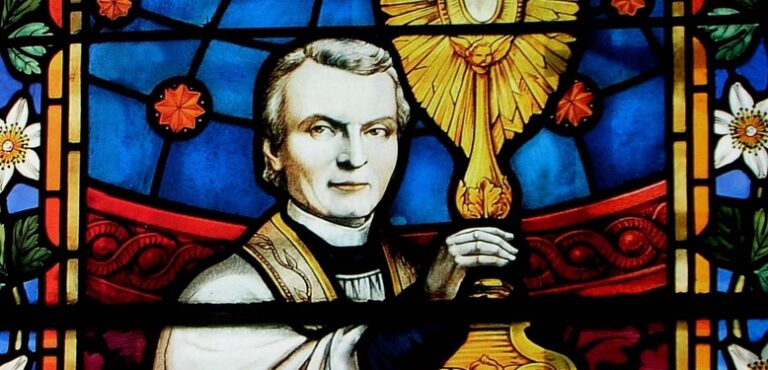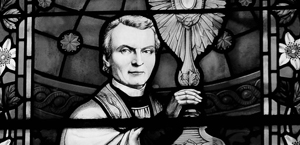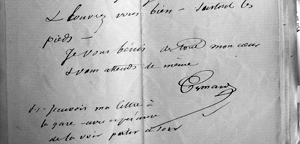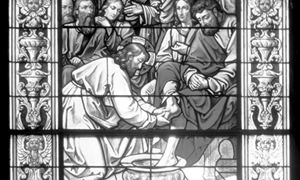“My sheep hear my voice; they know me and follow me.” Alleluia!! In listening to Jesus, we, curious children, explore many opportunities to experience God’s love.
We grew up seeing paintings of glowing halos around Jesus, Mary, and Joseph, “tongues of fire” settling on the Apostles. These images encourage the idea that the Spirit transforms us by accepting Jesus’ message of God’s love. We are encouraged to grow the same relationship with Jesus that the saints experienced.
Yes, we know change is constant — and it has consequences. For example, since Saint Peter Julian walked the earth, the world boasts of advances: central heating and cooling, travel by walking or horsepower to trucks, airplanes, rockets, and medicines. Manipulating creation’s gifts by man can improve things. There is an attitude shift from dependence on God to dependency on ourselves. However, this makes it difficult for my sheep to hear my voice.
I learned to examine my conscience nightly in childhood, which morphed into “guilt trip training.” It took a while for the teachings of Vatican II to transition the Sacrament of Penance to the Sacrament of Reconciliation and the daily examination into focus my intent to follow in Jesus’ footsteps. This is a change to be aware of and share with others.
Note: The Eucharist is a constant that does not change – the Eucharist inspires change. It is the source of all strength, change for the better, and peace. God’s love leads to transformation (change), similar to waves washing on the shore. Over time, Saint Peter Julian’s suggestions of prayer: adoration, thanksgiving, reparation, and petition, embrace one more: when in the presence of the Eucharist, open your heart and listen in silence. Even for the people of the Old Testament and when Jesus walked the earth —as well as the people of today — God and the angels and saints continually communicate with us: saints in training.
Let us pray
Lord Jesus, you want to see in us the attitude, the intent of believing in you, to follow in your footsteps, and to embrace our responsibility to witness for you in thought, word, and deed. We listen to your promptings and use what you have given us to examine, explore, and discover your intent for us. You teach us to hear your voice in all circumstances. As the father did for his son in Mark 9, we simply respond, “Lord, I believe. Help my unbelief.”













